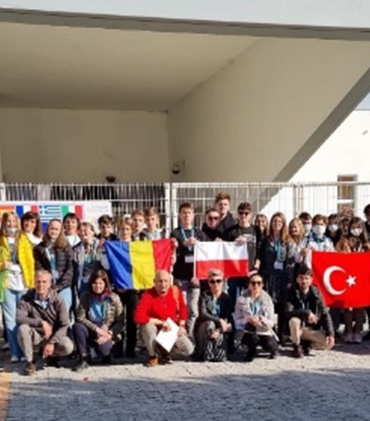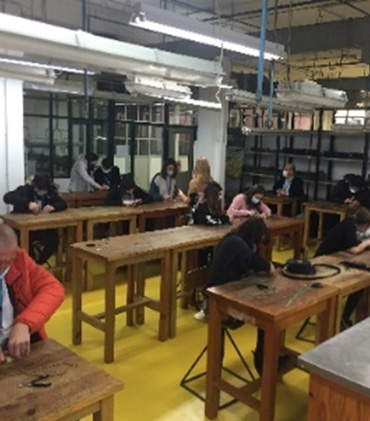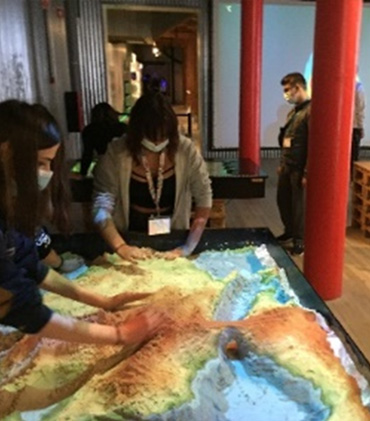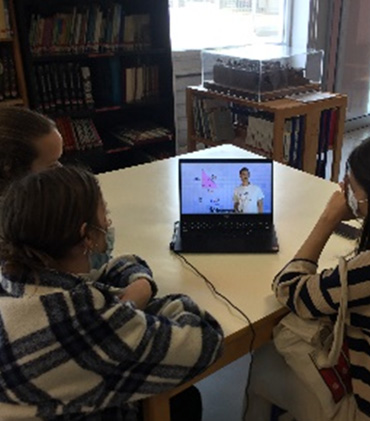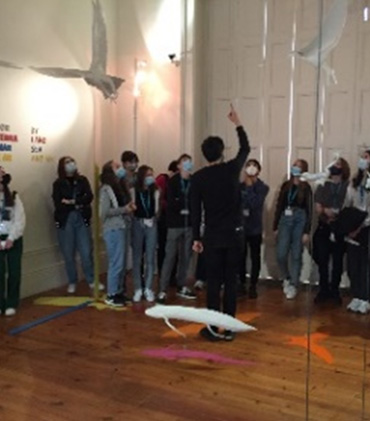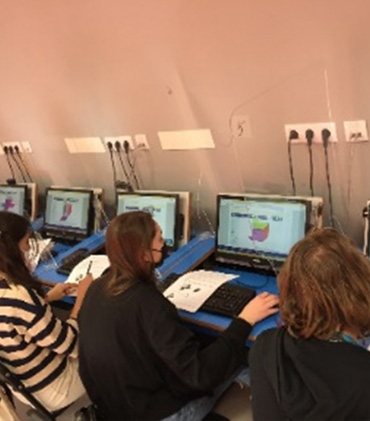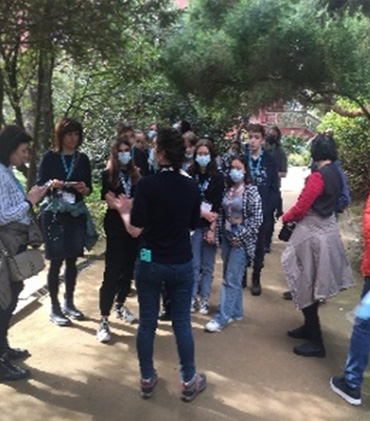SCIENCE IS ALL AROUND US ERASMUS+



HOW TO DO- 2nd LTTA
HOW TO DO- 2nd LTTA
Rio Tinto, Portugal 21-25.02.2022
Continuing the implementation of the Erasmus+ Science is All Around Us (SAAU) project and fulfilling the mobility objectives the 2nd LTTA took place.
The first day began with a welcome to students and teachers from partner countries with the anthem of the Rio Tinto School Grouping, sung by the students, presentation of the participating schools, the programme, viewing of videos and presentations made by students from different countries. An ice-breaker "Game of Affections" was also held among the participants and a guided tour of the school facilities ended with lunch in the school canteen.
During the afternoon, offered by the Municipality of Gondomar, there was a visit to the professional training centre CINDOR of the gold smithery, jewellery and watchmaking sector, where the students had the opportunity to learn and experiment with some ancestral techniques such as filigree chiselling and stamping. The Casa Branca de Gramido Museum was also visited, with the Douro River as a backdrop and integrated in the Filigree Route. In this space there was an exhibition that shows the estate of the Gondomar jewellery.
On the second day, students took part in a cultural visit to the city of Aveiro. The discovery of the city began with a trip on a traditional "Moliceiro boat" through the ria to the salt-pans area. This was followed by a visit to the city centre and the tasting of a typical regional sweet, "Ovos Moles".
The afternoon of the second day was spent at Fábrica Centro Ciência Viva de Aveiro, where the students did interactive activities, "Hands on", involving several science subjects such as physics, chemistry and mathematics. Then, they visited the exhibition "What if Mendeleev was here?!" where the importance of the evolution and history of science, associated with the construction of the Periodic Table, for society and everything that surrounds us, was highlighted. The day ended with the activity "Look at the robot!!!" where students built efficient robots, learning the basic principles of programming and coding with Lego pieces and inspired by real-world scientific projects, including engineering, technology, programming and computing.
On the third day the activities started at school with STEAM/CLIL activities. One of the maths lessons was devoted to calculating the volume of parallelepiped and cube using an apllet. The second mathematics lesson focused on Pythagoras Theorem using a communication, collaboration and learning platform "graasp.eu" where students applied some of its features, such as watching a movie and a quiz. The experimental activity in physical chemistry focused on climate change.
In the afternoon, the teams visited the Botanical Garden, the Andresen House and its gardens, the spaces with centenary trees and several rare and/or exotic species, the Biodiversity Gallery - Living Science Centre, a space that results from the crossing of art with biology and natural history. Also in the same place, the students carried out a workshop "A drop of life: the quality of water" to identify some properties of water, relating them to its function in the environment and in living organisms; distinction of specific characteristics of proper water (spring and mineral) and improper water (brackish and polluted) for consumption.
On the fourth day at school, teachers and students participated in the workshop: "Plastic oceans and the history of microplastics", where videos about this environmental problem were shown and the task "Looking for microbeads" present in personal hygiene and make-up products using the application "Beat the Microbead" via mobile phones was performed. This was followed by a walk-through Rio Tinto with the objective of getting to know the area around the school. In the afternoon, the programme was followed by an afternoon dedicated to getting to know the Historic Centre of the City of Porto and ending with a boat trip on the Douro River between bridges.
On the fifth and last day, the students made presentations and videos relating the experiences and experiences of the week, respective evaluations and a meeting of coordinators to plan the next LTTAs. The week ended with a lunch social with and a closing session with the presentation of certificates.
The programme aimed to include innovative learning activities in STEAM and CLIL themes, encourage cultural sharing, involve the participating teams in interactive learning and develop social, cultural and language skills.
Marina Rebelo
Coordinator Portugal Team
